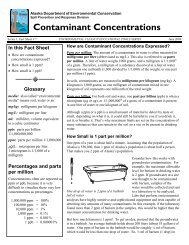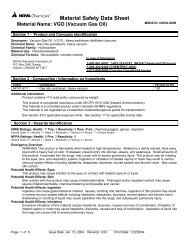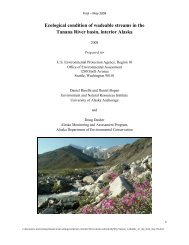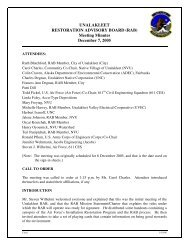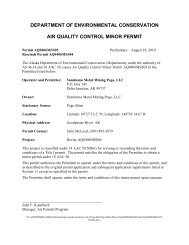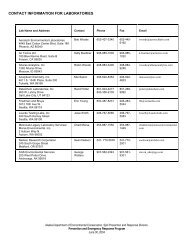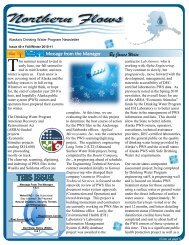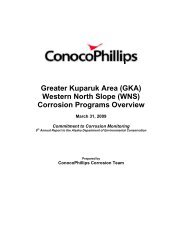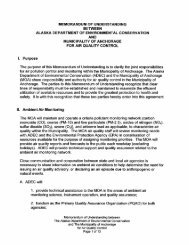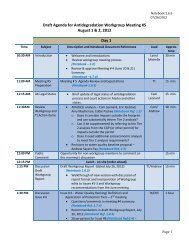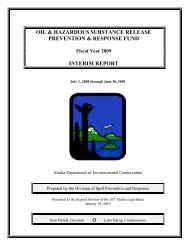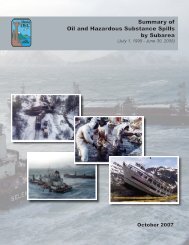2012 Ocean Ranger Guidebook Revision 3-7-12 - Alaska ...
2012 Ocean Ranger Guidebook Revision 3-7-12 - Alaska ...
2012 Ocean Ranger Guidebook Revision 3-7-12 - Alaska ...
Create successful ePaper yourself
Turn your PDF publications into a flip-book with our unique Google optimized e-Paper software.
<strong>20<strong>12</strong></strong> <strong>Ocean</strong> <strong>Ranger</strong> <strong>Guidebook</strong> 3-7-<strong>12</strong><br />
Waste Management Practices<br />
REVISED: (November 27, 2006)<br />
CRUISE INDUSTRY WASTE MANAGEMENT<br />
PRACTICES AND PROCEDURES<br />
The cruise industry is dedicated to preserving the marine environment and oceans upon<br />
which our ships sail. As a stated industry standard, CLIA members have adopted aggressive<br />
programs of waste minimization, waste reuse and recycling, and waste stream management set<br />
forth in the following. In addition, CLIA members are working in a number of areas to identify<br />
and implement new technologies in order to improve the environmental performance of their<br />
ships. CLIA member lines currently have agreed to utilize waste management practices and<br />
procedures, which meet or exceed the stringent standards as set forth in international treaties and<br />
applicable U.S. laws.<br />
Introduction<br />
The cruise industry is inextricably linked to the environment. Our business is to bring<br />
people to interesting places in the world, over the water. Recognizing the future of the industry<br />
depends on a clean and healthy environment; cruise industry senior management is committed to<br />
stewardship of the environment and establishing industry practices that will make CLIA member<br />
cruise ship operators leaders in environmental performance.<br />
This document outlining member line practices has been developed under the auspice of<br />
the industry’s professional organizations, the Cruise Lines International Association (CLIA), the<br />
Florida Caribbean Cruise Association (FCCA), and the Northwest Cruise Ship Association<br />
(NWCA). The purpose of this document is to set forth cruise industry waste management<br />
practices and procedures that CLIA member cruise vessel operators have agreed to incorporate<br />
into their respective Safety Management Systems.<br />
In the development of industry practices and procedures for waste management, the members<br />
of the Cruise Lines International Association have endorsed policies and practices based upon the<br />
following fundamental principles:<br />
• Full compliance with applicable laws and regulations;<br />
• Maintaining cooperative relationships with the regulatory community;<br />
• Designing, constructing and operating vessels, so as to minimize their impact on the<br />
environment;<br />
• Embracing new technology;<br />
• Conserving resources through purchasing strategies and product management;<br />
• Minimizing waste generated and maximize reuse and recycling;<br />
• Optimizing energy efficiency through conservation and management;<br />
• Managing water discharges; and<br />
• Educating staff, guests and the community.<br />
134



